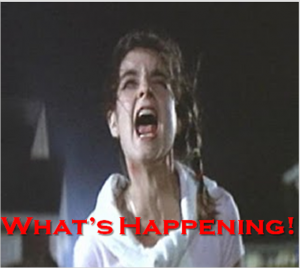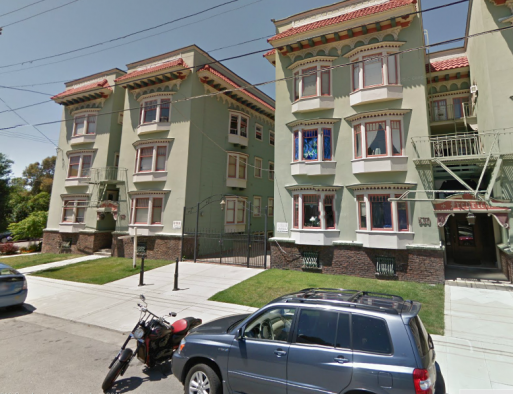
The true feelings of a girl perplexed in a man’s world
What’s Happening Credit: Digital Public Library
Recently, I found myself in the position of being in the line of fire to suffer the residual effects of post traumatic stress disorder (PTSD). I had delivered my public talk “Changing the Last Taboo – Death” to my San Francisco Toastmasters group. My presentation discusses the four reasons why I think the Boomers are opening up the conversation on death in the U.S. My prior speeches on various topics had been successful, but given my passion about this heartfelt subject of Death – well I was incredibly nervous. Like deer in headlights nervous. Or, better put, one could say I lacked the emotion I felt and wanted to emote.
It wasn’t until later that I realized one of our Toastmasters members had, in fact, served in the Bosnian war — and my talk unexpectedly triggered him. As the National Institute of Mental Health describes it, “People who have PTSD may feel stressed or frightened even when they’re no longer in danger.” A wide variety of traumatic incidents can cause post traumatic stress disorder, including rape, torture, child abuse, plane crashes, bombings and muggings to name just a few. The effects of the experience can manifest in many unfortunate ways.
This was my second intimate encounter with post traumatic stress disorder. I had been mugged in front of my apartment building in Oakland when I was 20 year’s old. I felt helpless when a man ran and threw himself against me, out of the blue, knocking me to the ground. He straddled me as I lay face up while I made the immediate, decisive decision to accept rape without a struggle. A far better choice than a bullet to the head, I thought. While he did not rape me, I fully experienced what it was like to be physically over-powered by force and violence.
For decades the sound of someone running behind me triggered a response. I remember an incident from my college years in Cincinnati, Ohio (safeville), when I was walking to my car in a grocery store parking lot — out of the blue (once again), a friend excitedly ran up to me, throwing his arms around me in a bear-hug. I involuntarily burst into a fit of tears. My friend stood there, dumbfounded at my triggered response. Little did he know I felt like I was being mugged all over again. So I have experienced a light-weight version of PTSD — and I know how firmly it grips our minds.
I had been mugged in front of my home in Oakland when I was 20 year’s old.
The following week, without any expectations, the former soldier member gave a Toastmasters talk in rebuttal to mine. What was positioned as a rebuttal was actually a triggered emotional response that had resulted in a personal attack on me. The force of his anger and hatred was all directed and funneled towards my mind and body. He locked into my eyes and squinted with a look of wanting to kill me at many points; he talked of his war experiences, of killing others, of seeing bodies blown up and watching as once, a head flew past him.
I sat there listening and watching, all the while feeling as if all the horrors of a battlefield were being streamed into me by force. I cried on the spot, I cried on my way home and I cried later that evening. I was frightened by his anger – no, I was completely terrified!
I was frightened by his anger – no, I was terrified!
When I woke in the middle of the night to fear and tears immediately streaming down my face, I suddenly felt more than the weight of my fellow Toastmasters member’s pain; I felt the magnitude of the atrocities of man and all the past wars waged. My fellow Toastmaster had pushed his anger into me. I lay in bed, feeling my whole body shaking and my head spinning. I thought of how women usually cat-fight, but seldom choose to pick up weapons to settle disagreements. I felt bludgeoned by the aggressiveness of man’s actions.
I wanted to scream — I felt like Heather O’Rourke in Poltergeist, in the scene where she screams, at the top of her lungs, “What’s happening?!” I was feeling my own form of PTSD from this man’s verbal attack on me. I was screaming this to the whole world — to our male-driven world.
I knew then, as a woman in business, that I couldn’t give up with SevenPonds. And I felt that if people would only talk about the effects of death more, we could be better prepared for unexpected reactions from PTSD. I had to push forward to ultimately help change the world.
Related Articles:
- Have you ever considered what would happen if a suicide occured at the workplace (on-site or off-site)? Or what would happen if a shooting, or any kind of workplace violence erupted? Then read an insightful interview with Wilma Bass: here.
- Carolyn Mears’ son was a student at Columbine High School in Colorado, where a horrifying mass shooting claimed the lives of 12 students and 1 teacher. Her son was trapped in the high school during the shootings. Read her interview here.
- Visit the National Institute of Mental Health’s website to understand more about PTSD.

 Giving a Talk at Toastmasters Seems so Benign
Giving a Talk at Toastmasters Seems so Benign



 Funeral Favors Offer Visitors a Tangible Memento
Funeral Favors Offer Visitors a Tangible Memento
 “Comeback” by Prince
“Comeback” by Prince
 “Other Side” Documents Woman’s Fight To Die As She Wishes
“Other Side” Documents Woman’s Fight To Die As She Wishes














